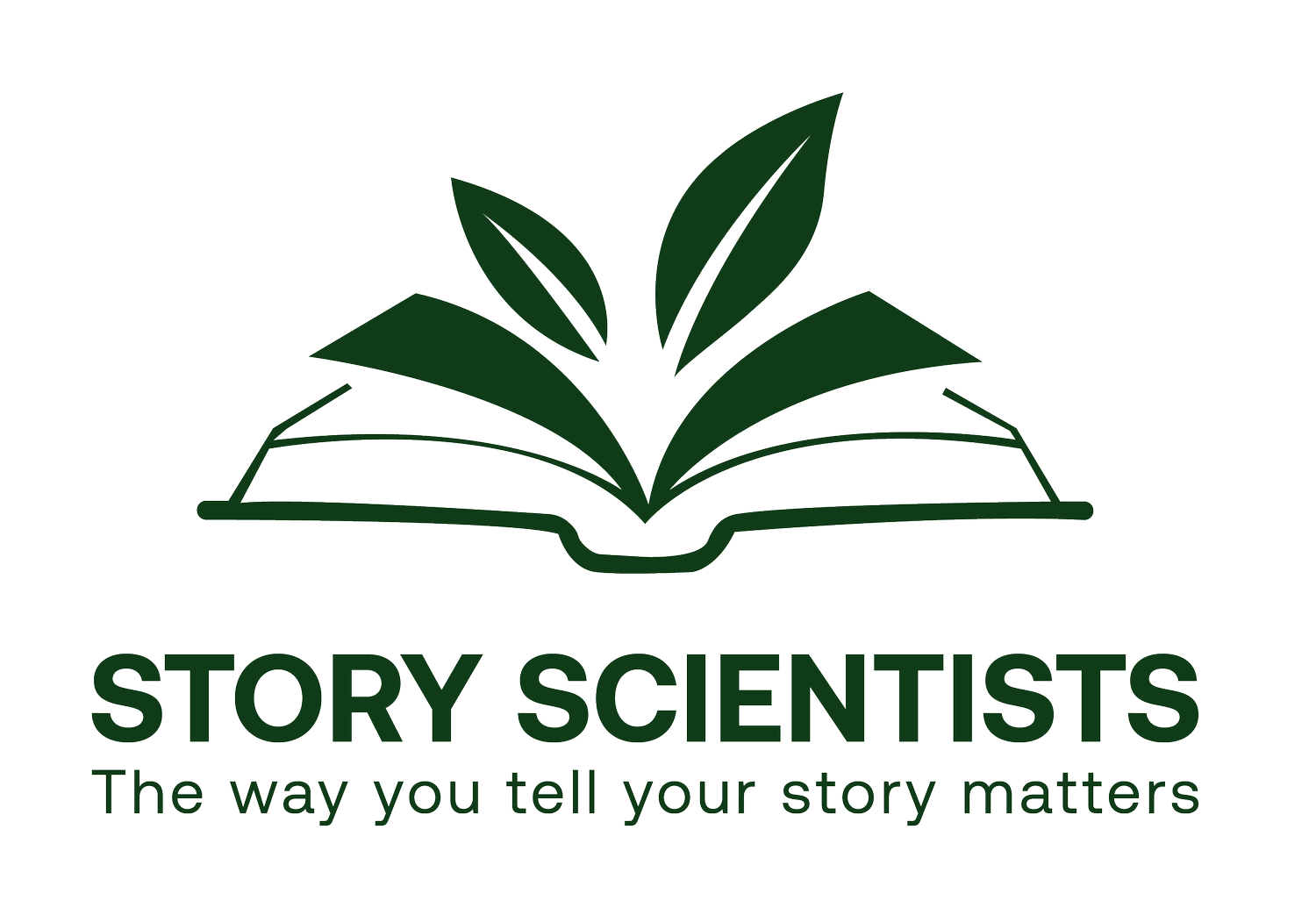Stories as who we are.
We’ve all heard that humans are natural storytellers. But did you know that your life story is a foundational part of your personality, identity, and even shapes your mental and physical health?
According to Dan McAdams, our narrative identity – the way we tell our life story – emerges in adolescence as the third and final layer of our personality. Studies in narrative identity have found that changes in the way we tell our life story affect our behavior, mental health, physical health, and even our DNA.
Stories as the way we think.
You’re only using half your brain.
Cognitive scientist Jerome Bruner demonstrated that humans have two fundamental modes of thinking and knowing:
the paradigmatic mode
logical, systematic, scientific
human as impartial data collector
seeks to explain how things work
the narrative mode
time-based, sequential, plot-driven
human as main character and narrator
seeks to explain the meaning we make of experiences
But most of us never learned how to harness our narrative mode. The impact of intentional reflection on our own story on our sense of self and – according to countless studies – our well-being is undeniable. The ability to share and hear life stories, however, is also critical for allowing our relationships to flourish.
Despite the importance of our narrative mode, most education and workplaces focus on logic, analysis, technical skills, and data – ignoring the half of our mind that creates meaning, drives motivation, and connects us to others.
What happens when we ignore the half of our mind oriented towards humanity:
students lose their spark and struggle to find community
engineers design for themselves instead of real human needs
healthcare workers burn out and lose sight of their purpose
teams become disconnected and collaborate with difficulty
people follow others’ expectations instead of their own values
What happens when we tap into our narrative mode through life story work:
increase personal agency – feeling like the author of your story
align choices with values – making decisions that match who you authentically are
build resilience – discovering growth and meaning even during difficult chapters
navigate transitions with clarity – finding coherence during career changes and life pivots

